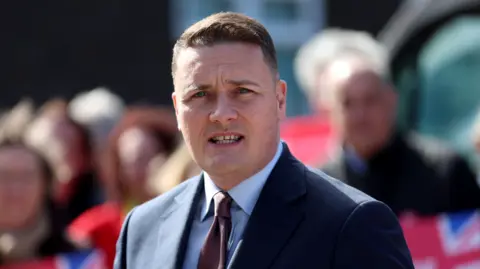In recent comments, Health Secretary Wes Streeting addressed the impact of cuts to winter fuel payments on Labour’s performance in the local elections that took place last week. He acknowledged that many voters expressed their dissatisfaction regarding this decision, noting that the issue was frequently raised during campaign interactions. Streeting emphasized that the government’s rationale for restricting these payments was to enable further investment in public services amidst the ongoing crises facing the nation.
Winter fuel payments, designed to aid older individuals in managing heating costs during the colder months, were subject to new restrictions instituted last year. Previously, these payments provided a lump sum of £200 annually for pensioners under the age of eighty, while those over eighty received £300. The government’s decision to limit eligibility to those qualifying for pension credit and other income-related benefits was aimed at saving approximately £1.4 billion, affecting nearly nine million pensioners who no longer qualified for the financial support.
Despite the financial motivations behind these cuts, Streeting confirmed that the policy was not currently under formal review, contradicting reports suggesting that ministers were contemplating a partial reversal of the cuts later in the year. Instead, he emphasized that Labour was reflective of voter feedback from the recent elections, during which the party suffered significant losses—losing control of councils and approximately two-thirds of the seats it was defending.
During his interview, Streeting was candid about the reception of the winter fuel policy, stating, “I’m not going to insult your viewers by pretending that winter fuel didn’t come up on the doorstep, of course, it did.” He recognized that while the intention was to protect the poorest pensioners, many were dissatisfied with the changes, expressing a sentiment of disagreement toward the cuts regardless of the protective measures implemented.
Furthermore, Streeting positioned the winter fuel payment cuts within a broader context of necessary reforms aimed at addressing multiple crises inherited by the government. He defended these difficult decisions as vital for securing investments essential for improving public services, highlighting the complexities of balancing financial realities with voter concerns.
The history of the winter fuel payment dates back to its introduction by the New Labour administration in 1997 as a universally available benefit for all pensioners, intended to assist with increased heating costs. The intention behind the payment was to ensure that seniors could afford to stay warm during winter months. Indeed, while the payment has shifted from being a strictly heating cost support to a general pension top-up, the initial premise remains relevant today.
Under the “triple lock” policy implemented in 2010, the state pension was granted enhanced protection against inflation, wage stagnation, or other economic strains, assuring annual increases. Last year saw a substantial 8.5% increase in the state pension, amounting to an additional £691.60 for those on the full basic state pension and £902.20 for those on the full new state pension. While the adjustment for this year stands at 4.1%—resulting in increases of £363 for those on the basic pension and £472 for those on the new pension—the economic implications of inflation continue to bear heavily on elderly citizens reliant on these financial supports.
As discussions surrounding the winter fuel payment continue, No. 10 sources indicate that the government has begun addressing the pressing public concerns surrounding this contentious issue, acknowledging the electoral repercussions tied to these policy decisions. The implications for Labour and the government’s broader strategies in connecting with older voters remain a critical consideration as they navigate their political agenda in the wake of recent electoral setbacks.



